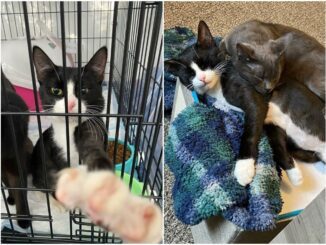
Elon Musk’s vision for the future has always been about pushing the boundaries of technology to improve human lives. From electric vehicles to space travel, his companies have continuously reshaped industries. Now, with Optimus Gen 3, the latest version of Tesla’s humanoid robot, Musk aims to revolutionize another critical area—eldercare and assistance for people with mobility challenges.
A Future Where Robots Care for the Elderly
One of the most compassionate applications of Optimus Gen 3 is its potential to assist the elderly and individuals with limited mobility. As societies around the world experience rapidly aging populations, there is an increasing demand for high-quality, accessible eldercare. Many elderly individuals struggle with basic daily activities, and while caregivers and family members do their best, they often face challenges due to time constraints, physical demands, or financial limitations.
Tesla’s Optimus Gen 3 could offer a groundbreaking solution. Musk has expressed hope that future iterations of the Tesla Bot will be capable of:
- Helping individuals get out of bed safely
- Assisting with walking and mobility support
- Reminding them to take medications on time
- Performing basic household tasks, such as fetching water or preparing simple meals
- Calling for help in case of an emergency
If successfully implemented, Optimus Gen 3 could allow elderly individuals to maintain their independence for longer, reducing their reliance on human caregivers while also providing peace of mind to family members.
The Role of AI in Eldercare
At the heart of Optimus Gen 3’s capabilities is advanced artificial intelligence. Tesla’s extensive experience in AI, particularly in developing autonomous driving systems, has given them a significant advantage in creating a humanoid robot that can navigate real-world environments and adapt to different situations.
The robot will be equipped with computer vision, voice recognition, and machine learning, allowing it to understand spoken commands, recognize faces, and even interpret emotions. This level of intelligence means that Optimus won’t just be a machine—it will be an intuitive and responsive assistant.
For example, if an elderly individual forgets to take their medicine, Optimus Gen 3 could detect the oversight and gently remind them. If a person falls and is unable to get up, the robot could alert emergency services or family members, potentially saving lives.
Reducing the Burden on Caregivers
One of the biggest challenges in eldercare today is the shortage of caregivers. In many countries, the demand for caregivers far exceeds the supply, leading to overworked professionals and increasing costs for families.
By integrating Optimus Gen 3 into households, the burden on caregivers could be significantly reduced. Instead of handling every task manually, caregivers could delegate routine, repetitive, or physically demanding tasks to the robot, allowing them to focus on providing emotional support and companionship.
For instance, Optimus Gen 3 could:
- Assist with dressing and grooming
- Provide reminders for doctor’s appointments
- Help with mobility exercises
- Monitor vital signs using integrated health sensors
These features would make Optimus Gen 3 an invaluable partner in home healthcare, complementing human caregivers rather than replacing them.
Aging With Dignity and Independence
One of the most significant concerns for elderly individuals is the loss of independence. Many seniors fear becoming a burden on their families or losing the ability to live in their own homes. Nursing homes, while providing care, often come with emotional and psychological challenges, as individuals may feel disconnected from their familiar surroundings.
Optimus Gen 3 has the potential to extend independent living for seniors by providing essential assistance without sacrificing personal autonomy. Instead of needing full-time human care, elderly individuals could rely on Optimus for day-to-day support, enabling them to stay in their homes for longer periods.
For many families, this could be a game-changer—allowing their loved ones to age comfortably, safely, and with dignity.
The Ethical Considerations of AI in Caregiving
While the idea of robots assisting the elderly is exciting, it also raises important ethical questions. Some concerns include:
- Can AI truly replace human care and emotional connection?
- Will elderly individuals feel comfortable relying on robots for intimate tasks?
- How can privacy and data security be ensured in home robotics?
Tesla will need to address these concerns by ensuring that Optimus Gen 3 is designed with strong ethical guidelines. Transparency in AI decision-making, secure data management, and clear limitations on its capabilities will be essential for public trust.
The Road Ahead: When Will Optimus Gen 3 Be Available?
As of now, Optimus Gen 3 is still in its development phase. While Tesla has showcased impressive demonstrations of the robot’s capabilities, it is not yet ready for mass adoption. However, Musk has stated that the goal is to make Optimus affordable and widely available, much like Tesla’s electric vehicles.
Experts predict that within the next five to ten years, Optimus could become a common presence in households, hospitals, and assisted living facilities. As AI and robotics continue to advance, the dream of robot-assisted eldercare is moving closer to reality.
Conclusion: A New Era of Human-Robot Collaboration
Optimus Gen 3 represents more than just a technological achievement—it symbolizes a new era of compassionate robotics. By integrating AI with practical caregiving applications, Tesla is paving the way for a future where robots play an active role in improving human lives.
If successful, Optimus could redefine what it means to age with dignity, offering millions of people around the world greater independence, safety, and comfort. As Tesla continues to innovate, one thing is clear: the future of eldercare may soon have a robotic helping hand.


